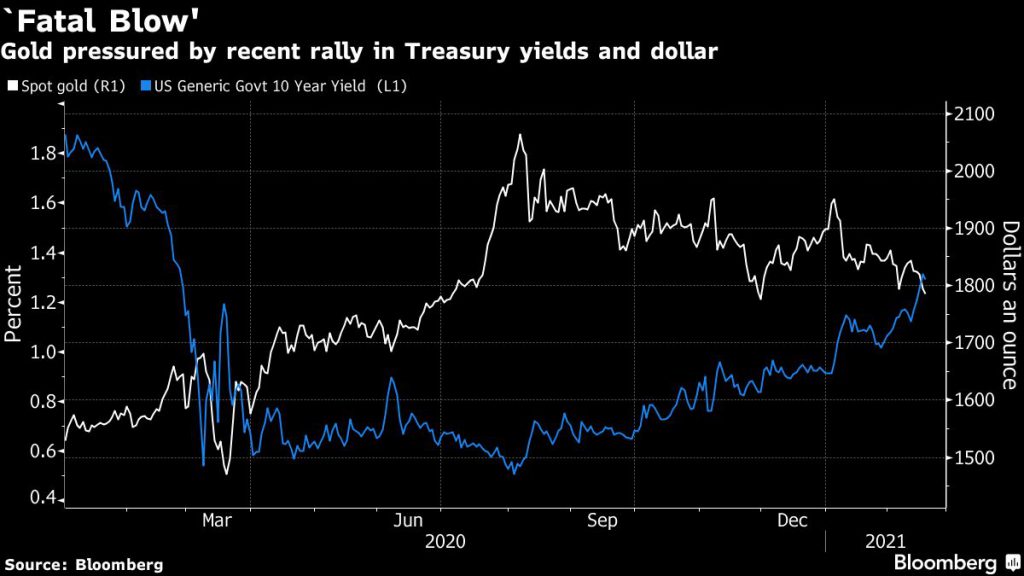Gold price dealt ‘fatal blow’ by bond yield rally
Growing expectations for inflation spurred benchmark US Treasury yields to their highest since late February 2020. Breakeven inflation, a measure of expected inflation, is at its highest since August 2014 at 2.2%.
“A runaway rally in global bond yields has delivered a fatal blow to gold”
Edward Moya, senior market analyst at Oanda Corp
While bullion is traditionally seen as a hedge against inflation, higher yields have increased the opportunity cost of holding non-yielding gold. The surge in yields in turn prompted the dollar to rebound from a three-week low, further pressuring gold.
Better-than-expected US economic data also diminished the appeal of gold as a haven.
Retail sales surged in January by the most in seven months, beating all estimates and suggesting fresh stimulus checks helped spur a rebound in household demand. Production at manufacturers also rose by more than forecast, a fourth-straight monthly advance, showing factories continue to recover from pandemic-related disruptions.
Downside pressure
The release of stronger-than-expected U.S. retail sales “put defensive assets like gold under pressure,” Commerzbank AG Carsten Fritsch told Bloomberg. “The rallying dollar and 10-year bond yields at 1.3% are other factors weighing on gold.”

Meanwhile, holdings in SPDR Gold Shares, the world’s largest bullion-backed exchange-traded fund, fell to the lowest since June. ETF purchases were a key driver of gold’s rally to a record high in August and could further pressure prices if outflows are sustained.
“A runaway rally in global bond yields has delivered a fatal blow to gold,” echoed Edward Moya, a senior market analyst at Oanda Corp. “Yields are rising on reflation bets, and that is triggering an unwind of many safe-haven trades.”
“The next 48 hours will be key to gold,” Ole Hansen, head of commodity strategy at Saxo Bank A/S, wrote in a note. “The fact it has been falling while inflation expectations have been going up is worrying and most likely due to the market expecting even higher yields and a stronger dollar.”
(With files from Bloomberg)




